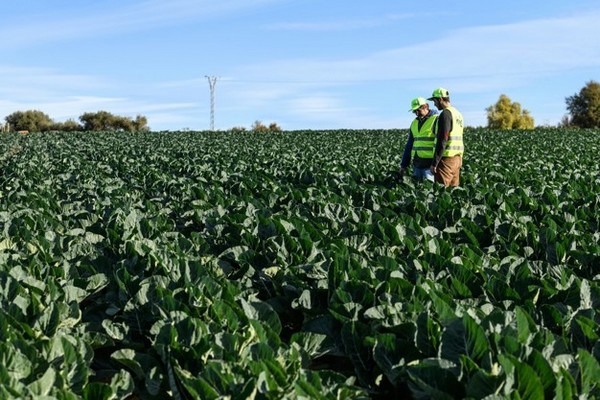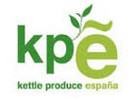The winter production of brassicas in high altitude areas of Spain started somewhat earlier than expected due to the spring-like weather of the last few months. Initially, yields were acceptable, but since the end of October, coinciding with the fateful episode of the storm and floods in Valencia (which had hardly any consequences in Murcia), humidity levels have increased due to the rains. This, together with the persistent morning dew of the last month, has caused the proliferation of fungal diseases, which have taken a toll on the yields and quality in recent weeks, according to Juan Manuel Ruiz, commercial director of Kettle Produce Spain.

"The production areas in Murcia, which have also been affected by fungal diseases, have started with very short production cycles, which could lead to a reduction in the supply in the coming weeks," says Ruiz.
"What has already been harvested (or has been lost) is no longer in the field, and if, as we are told, winter comes on suddenly, there could be a reduction in the supply in the coming weeks that would significantly change the course of the campaign. Due to the above mentioned reasons, prices have been bad or very bad throughout the month of November; a situation aggravated by quality issues and the lack of interest from the frozen industry," he says.
According to the grower and exporter, this year's overlap with the production in European countries has not been beneficial for the interests of Spanish producers. "The good weather in Europe over the last few months has allowed their seasons to be extended. It hasn't really been that cold yet, neither in Spain nor in Europe, which has resulted in a slight oversupply, although this situation is likely to change in the very short term."
Juan Manuel Ruiz is optimistic about the Christmas season. "Prospects are really good. In terms of sales, it is one of the most important periods of the year, and the cold weather forecast in Europe will certainly give a boost to the demand for brassicas. The programs and productions planned for these dates will allow us to meet our commitments to our clients, but with the temperatures forecast for the coming weeks, as well as the aforementioned aspects related to quality and the early production, the supply will not be excessive and there could be difficulties at certain times."

"It seems clear that the free markets, outside of programs, will experience radical changes compared to the current situation. In any case, no matter how much the demand and prices improve, the quarter's financial results will be negative for many companies," says Ruiz.
Shortage of labor, high costs and limitations in pest control: the biggest obstacles
As in the whole sector, the shortage of specialized workers and the high costs, which have actually continued to increase in some areas, could be the main challenges for this season, according to the Sales Director of Kettle Produce Spain.
"The way in which climate change could affect our production model, either through lack of water or adverse climatic phenomena, is also something we need to keep an eye on in the coming years," says Ruiz. "Unfortunately, there are factors that we cannot control."
"There is also great concern in our sector about our limitations to keep certain pests and diseases under control, which could have tragic consequences for next year's production," says Ruiz.
Kettle Produce Spain distributes its products mainly in the United Kingdom, although over the years it has been extending its client base to other European countries, including Nordic and Eastern European countries.
Juan Manuel Ruiz says: "Although broccoli is an important product for us, over the last few years we have been achieving sustained growth with cauliflower, as well as with different types of cabbage (pointed, savoy or green). The marketing of these products has also become essential for the company."
 Juan Manuel Ruiz Soler
Juan Manuel Ruiz Soler
Kettle Produce Spain
[email protected]
www.kp-spain.com










